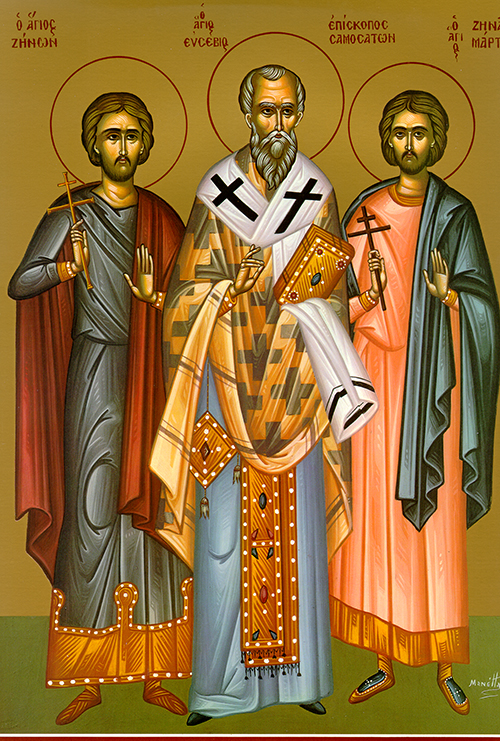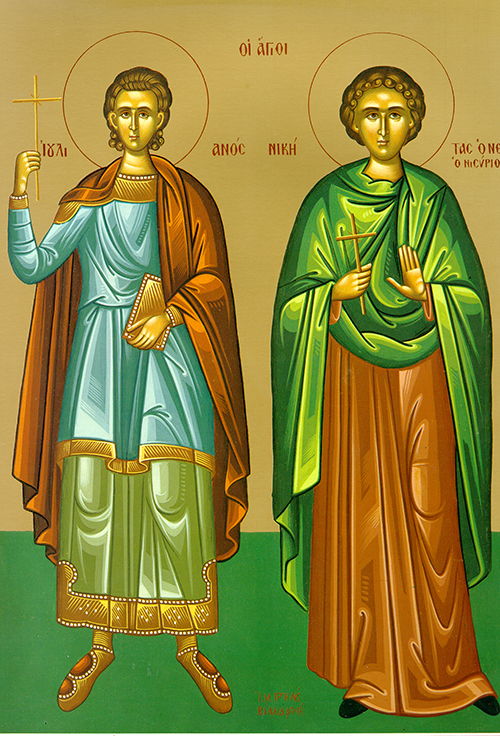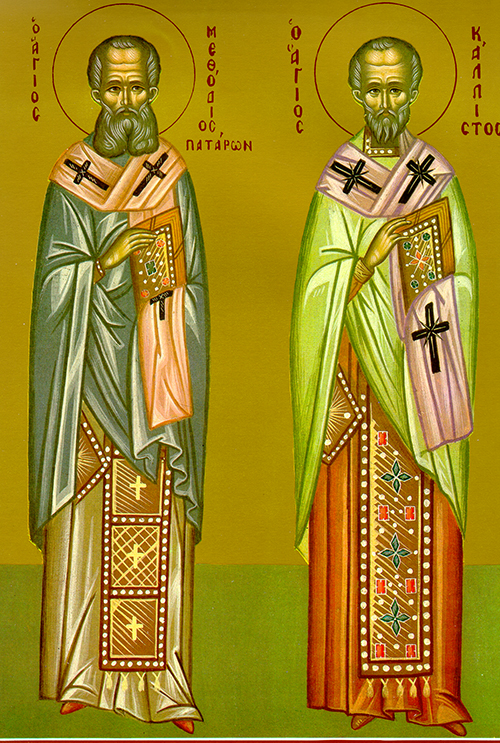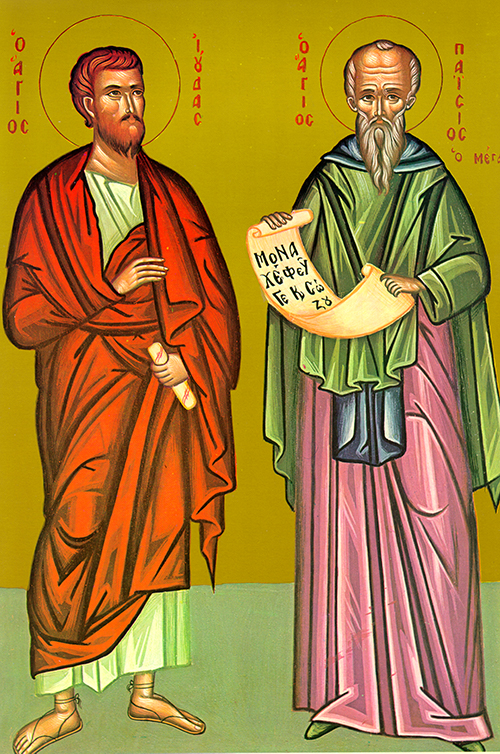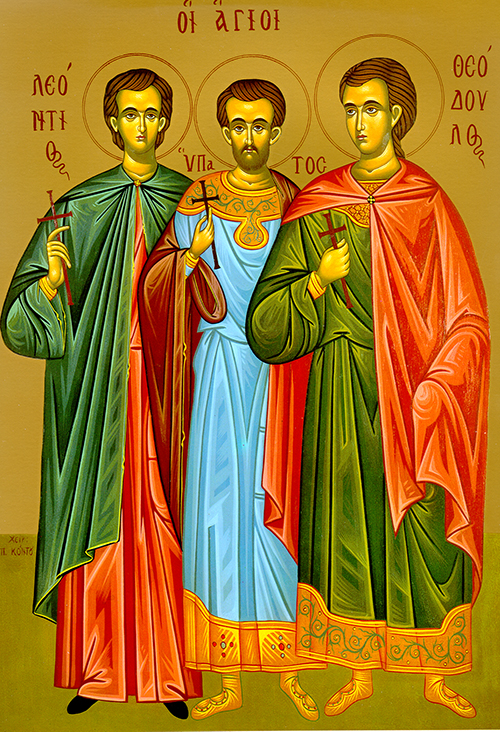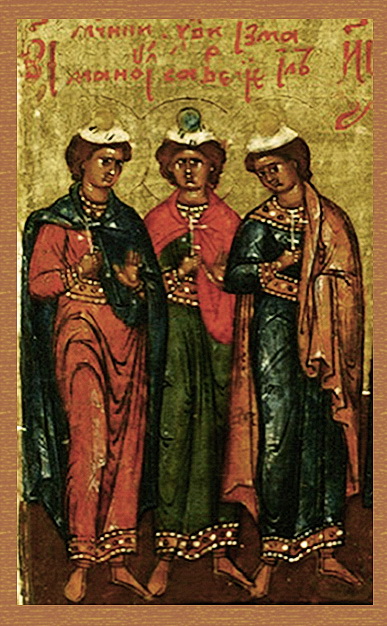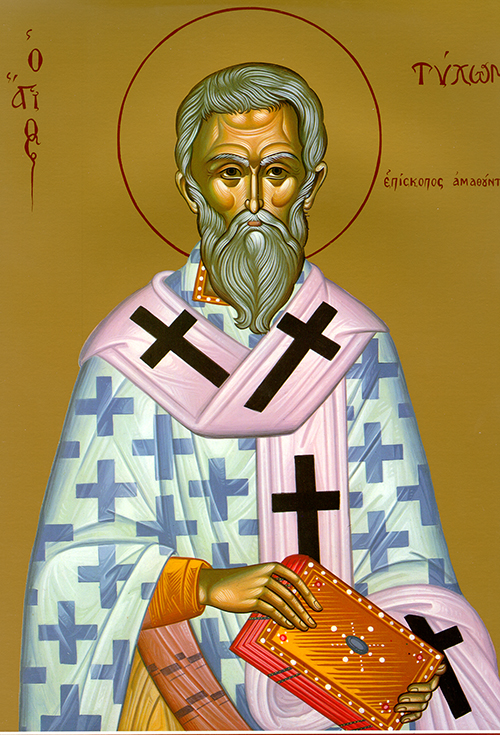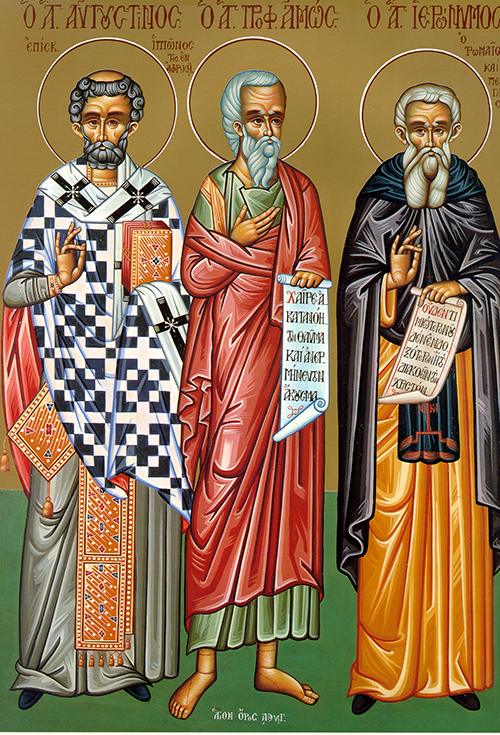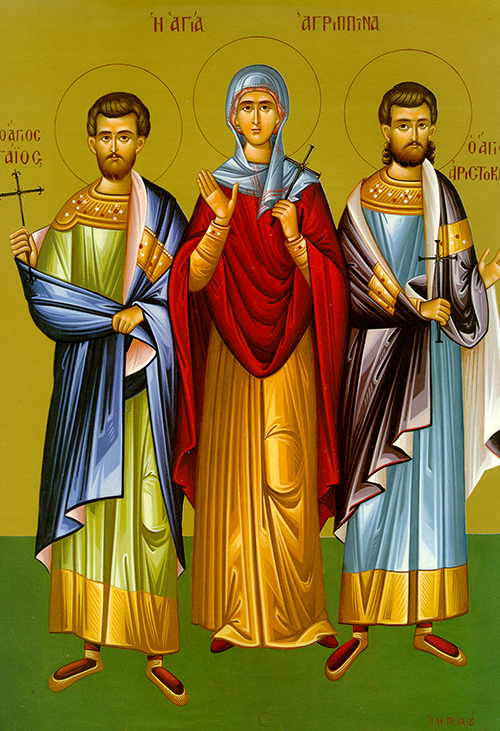

The holy martyr Agrippina was a Roman by birth. She did not wish to marry, and totally dedicated her life to God. During the time of persecution against Christians under the emperor Valerian (253-259) the saint went before the court and bravely confessed her faith in Christ, for which she was given over to torture. They beat the holy virgin with sticks so severely that they broke her bones. Afterwards, they put St. Agrippina in chains, but an angel freed her from her bonds. The holy confessor died from the tortures she endured. The Christians Bassa, Paula, and Agathonike secretly took the body of the holy martyr and transported it to Sicily, where many miracles were worked at her grave. In the 11th century the relics of the holy martyr Agrippina were transferred to Constantinople.
Troparion
You were overcome with love of the heavenly Lord and turned from the world and care of the flesh. You endured the afflictions imposed on you, saying: Receive me into your love, O Christ, King of ages, for I am being consumed for You. Make those who honor you happy in his mercy, O most praiseworthy martyr Agrippina.
Kontakion
The radiant day of your shining virtues has arrived. On this day the Church of God honors you and calls all to cry out joyfully: Rejoice, O virgin and martyr, most honorable Agrippina.
Epistle
Romans 10: 1-10
Brothers and sisters, my heart’s desire, my prayer to God for the Isrealites, is that they may be saved. Indeed, I can testify that they are zealous for God though their zeal is unenlightened. Unaware of God’s justice and seeking to establish their own, they did not subject themselves to the justice of God. Christ is the end of the law. Through him, justice comes to everyone who believes. Moses writes of justice that comes from the law, “The one who observes the law shall live by it.” But of the justice that comes from faith he says, “Do not say in your heart, ‘Who shall go up to heaven?’ (that is, to bring Christ down), or ‘Who shall go down into the abyss?’ (that is, to bring Christ up from the dead).” What is it he does say? “The word is near you, on your lips and in your heart” (that is, the word of faith which we preach). For if you confess with your lips that Jesus is Lord, and believe in your heart that God raised him from the dead, you will be saved. Faith in the heart leads to justification, confession on the lips to salvation.
Gospel
Matthew 8: 228-34
At that time as Jesus approached the Gadarene boundary, he encountered two men coming out of the tombs. They were possessed by demons and were so savage that no one could travel along that road. With a sudden shriek they cried: “Why meddle with us, Son of God? Have you come to torture us before the appointed time?” Some distance away a large herd of swine was feeding. The demons kept appealing to him, “If you expel us, send us into the herd of swine.” Jesus answered, “Out with you!” At that they came forth and entered the swine. The whole herd went rushing down the bluff into the sea and were drowned.
The swineherds took to their heels, and upon their arrival in the town related everything that had happened, including the story about the two possessed men. The upshot was that the entire town came out to meet Jesus. When they caught sight of him, they begged him to leave their neighborhood.
Icon courtesy of Jack Figel, Eastern Christian Publications – ecpubs.com


